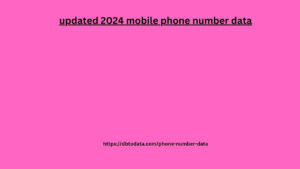As we hit the year’s midpoint, we actively stay updated with the rapidly advancing open science landscape. In this edition, Moumita Koley captures the pivotal events, opportunities, and readings from the previous month.
This editorial from Heila Pienaar was originally published on Frontiers on 14 June 2023.
Open science in Africa: The ongoing transition toward Open Science (OS) is increasing transparency and collaboration in the research enterprise. This Research Topic aims to investigate the transition to OS in Africa, including the concerns and advantages of OS for researchers and stakeholders. It also explores the role of new technologies and infrastructure in implementing OA and bridging the knowledge divide between countries. In this editorial, we provide an overview of eight articles that shed light on various aspects of open science, data sharing, and the challenges and opportunities they present in the African context. These articles highlight the importance of policymakers, institutions, and researchers working together to foster a culture of open science and to address updated 2024 mobile phone number data the existing barriers to data accessibility on the African continent.
The article by Okafor et al. focuses on the adoption of open science (OS) practices in Africa,
considering the limitations and prospects for its the hidden value of war: how scientists deal with the environmental destruction left behind by conflicts institutionalization. The authors emphasize the significance of science access for the advancement of scientific research and the development of the next generation of scientists in Africa. They highlight the global resurgence of discussions around open science due to the COVID-19 pandemic, particularly in resource-poor settings like Africa where OS practices are currently limited. Overall, the review article serves as an advocacy strategy and informative guide for policymakers and stakeholders involved in promoting and integrating open science practices in Africa. It highlights the importance bulk data of overcoming barriers and fostering a supportive environment for open science to thrive on the continent (Okafor et al.).
The next article,
“Rethinking the a in FAIR data: issues of data access and accessibility in research” by Shanahan and Bezuidenhout, raises concerns about the assumptions of accessibility in FAIR (Findable, Accessible, Interoperable, and Reusable) data principles. The authors emphasize that access to FAIR data resources can be influenced by geopolitical factors, exacerbating existing access inequities. They stress the need for increased awareness and consideration of these issues in FAIR implementation (Shanahan and Bezuidenhout).
The article,
“Open science in Africa: what policymakers should consider”
by Chiware and Skelly, underlines the importance of African governments
and institutions embracing open science principles and building research infrastructures
that align with the global open science movement.
The authors highlight the significance of OS policy frameworks and provide insights
for policymakers, aiming to guide similar initiatives in Africa (Skelly and Chiware).
“African researchers do not think differently about open data” by Skelly and Chiware, explores African researchers’ attitudes
toward open data and demonstrates that their perspectives are not significantly different from their international counterparts.
This finding emphasizes the need for policymakers
and institutions to understand and address researchers’ concerns and expectations regarding
data sharing and the open data ecosystem (Skelly and Chiware).
In “Open access
and its potential impact on public health—a South African perspective”, Strydom et al.
examine the impact of open access on public health in South Africa. They highlight the benefits of open
science and discuss financial implications and potential solutions for reducing publication costs for researchers and institutions.
The authors also address privacy concerns and the
role of data protection legislation in medical research and data reuse (Strydom et al.).

